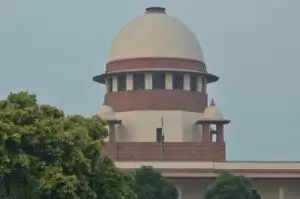New Delhi: The Supreme Court has decided to investigate whether a law that prohibits married couples with secondary infertility from pursuing surrogacy for a second child constitutes an infringement on citizens' reproductive rights.
According to the current law, couples who already have a biological child, an adopted child, or a child through previous surrogacy cannot opt for surrogacy again for a second child.
However, exceptions exist if the existing child has a severe mental or physical disability, a life-threatening condition, or a terminal illness without a permanent cure. In such cases, couples can seek surrogacy after obtaining a medical certificate from a district medical board and receiving approval from the relevant authority.
During the proceedings, Justices BV Nagarathna and R Mahadevan acknowledged the arguments presented by a lawyer representing a couple dealing with secondary infertility.
Justice Nagarathna remarked that the imposed restrictions might be justified given the country's increasing population.
The lawyer contended that the government should not interfere in the personal lives and reproductive decisions of individuals.
She emphasized that the term 'infertility' in relation to surrogacy, as defined in both the Assisted Reproductive Technologies Act and the Surrogacy Act, should not be limited to primary infertility.
You may also like

New Bombay High Court complex should be temple of justice not 7-star hotel: CJI Gavai

TMC's Sagarika Ghose calls BJP "anti-Bengal" after its MPs failed to attend Chittaranjan Das tribute ceremony

Union Minister Sukanta Majumdar's convoy attacked in Bengal's Nabadwip

Former England rugby captain and Lions star dies aged 87 as tributes pour in

Red swastikas drawn on Jewish buildings after NYC polls; mayor-elect Mamdani calls it 'disgusting act of antisemitism'







